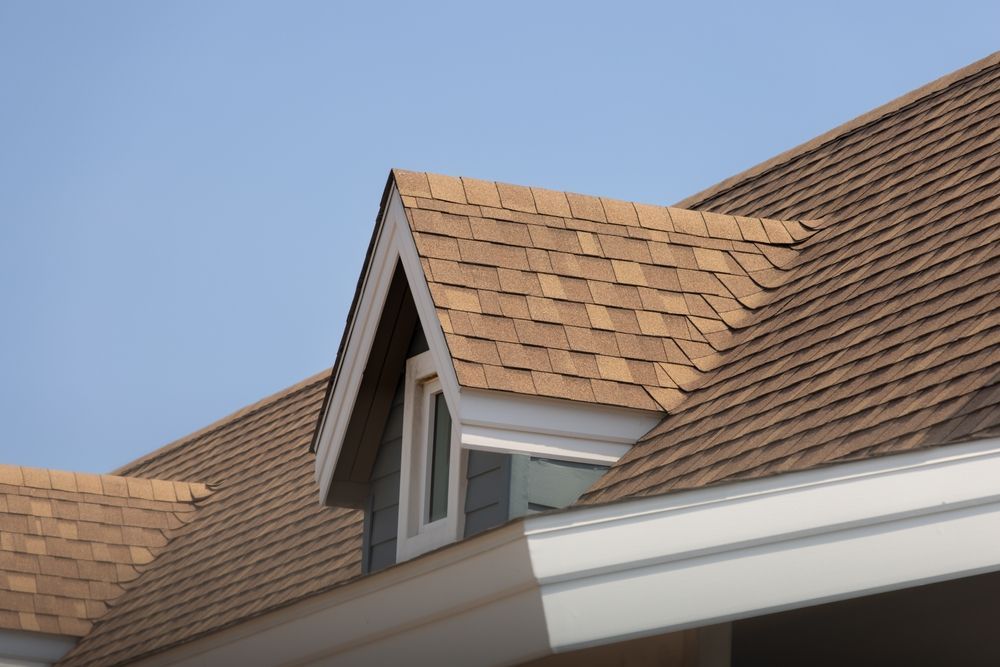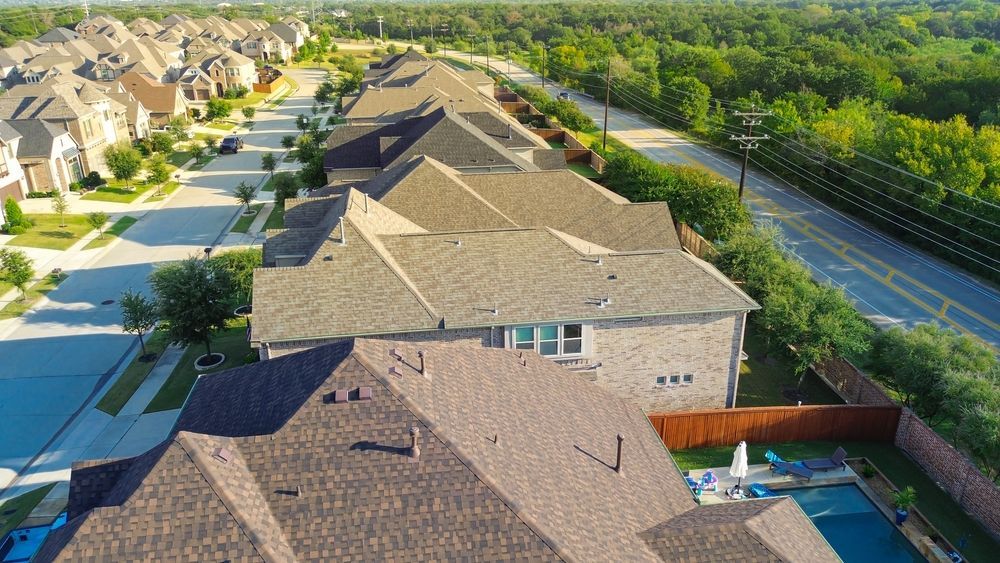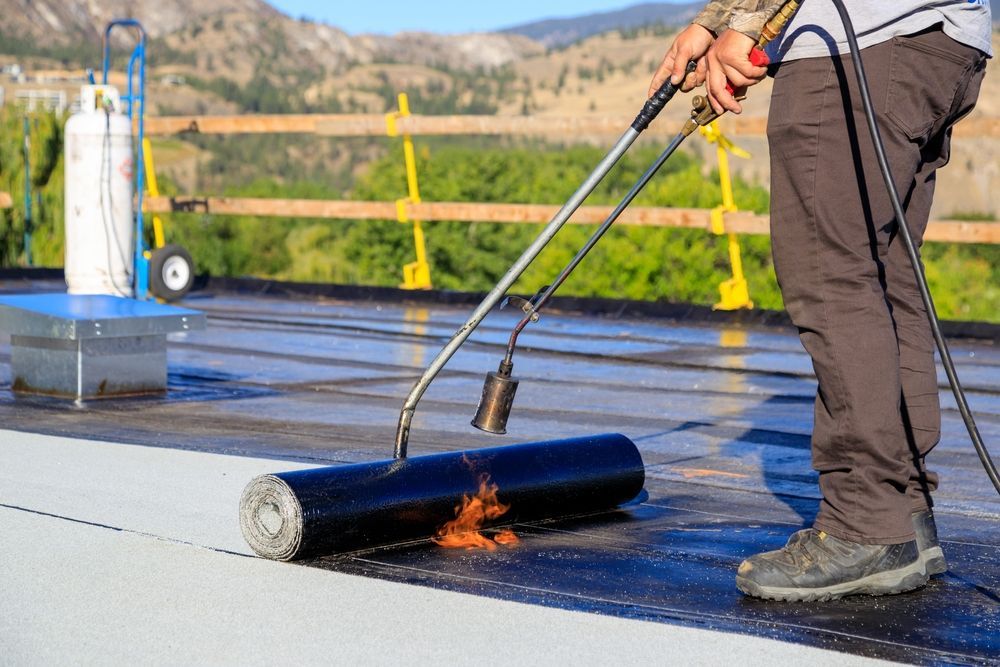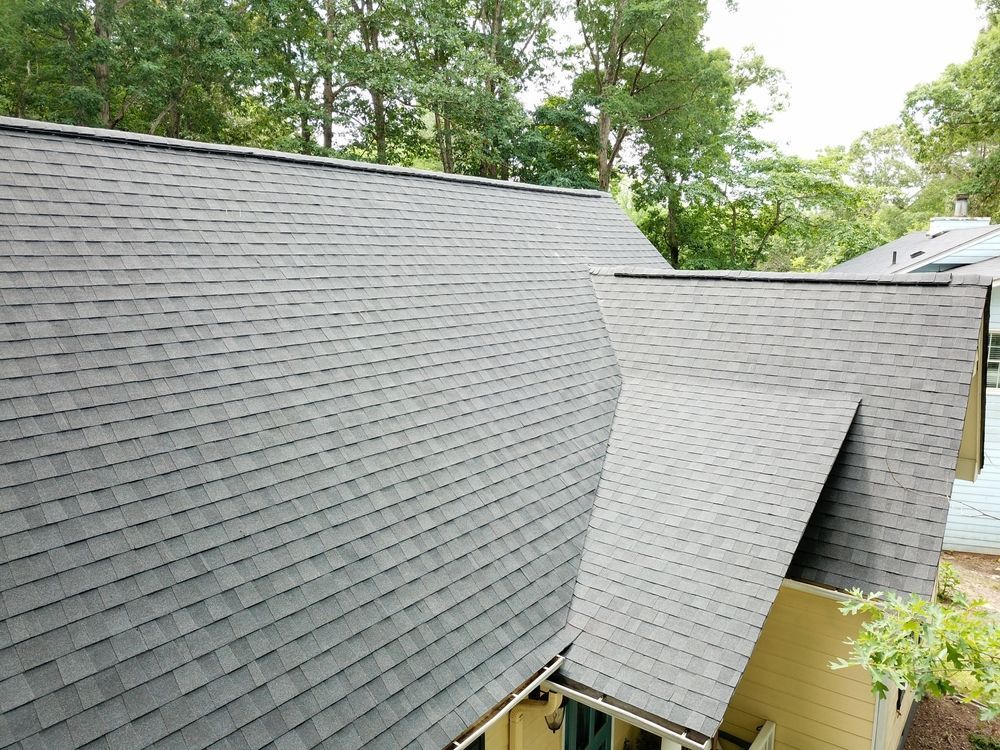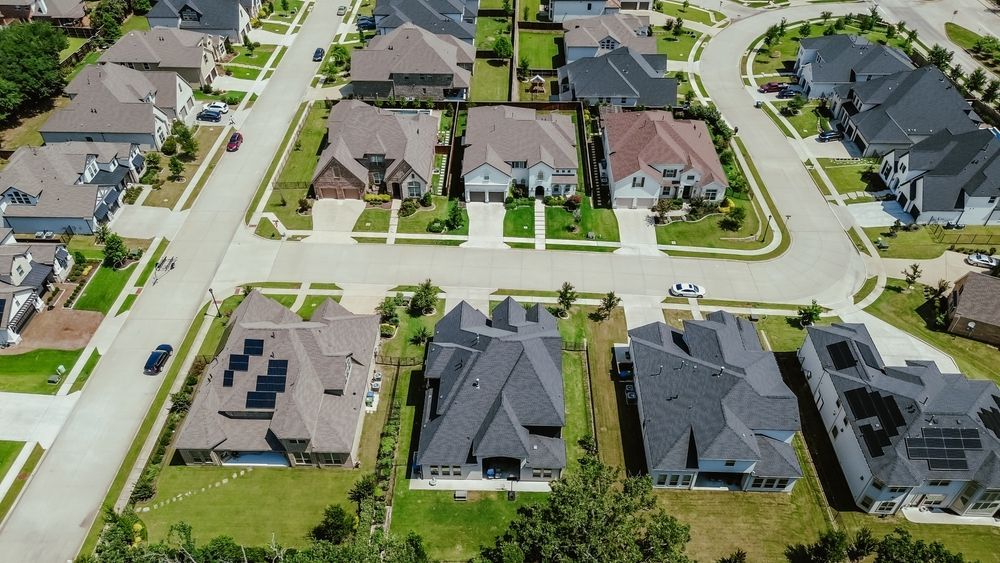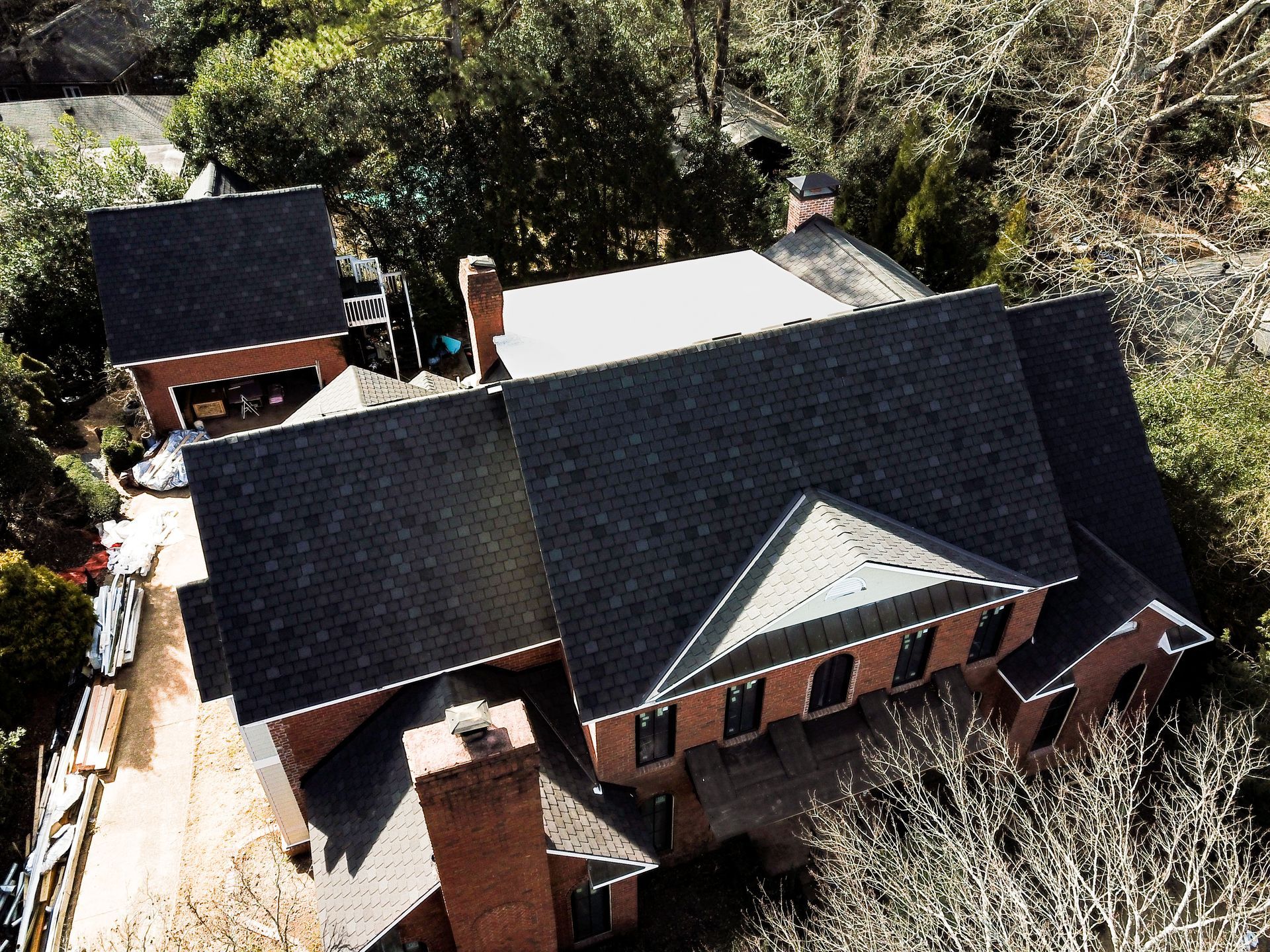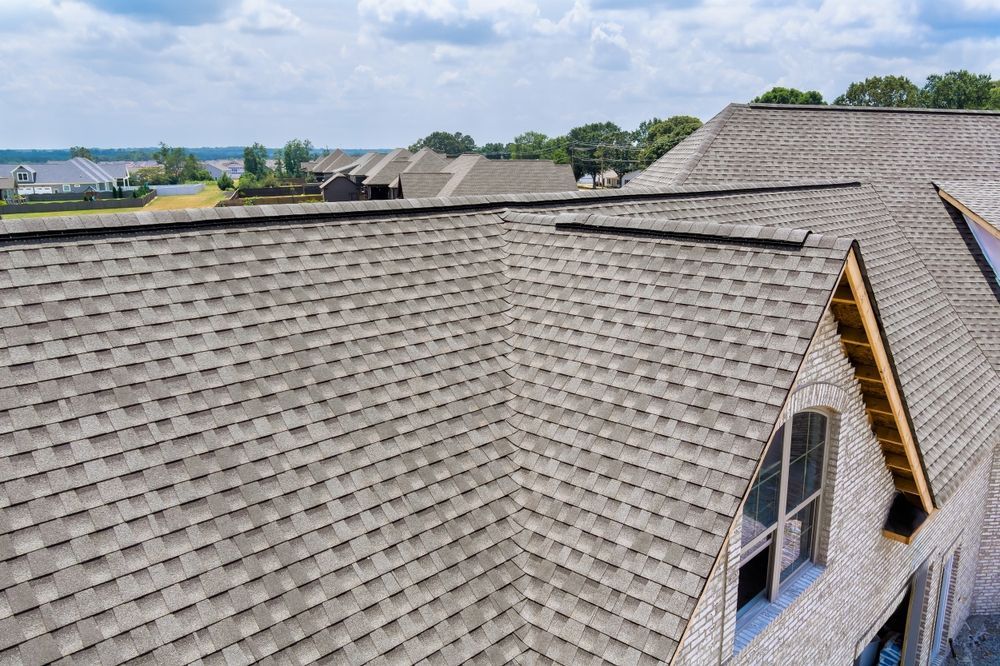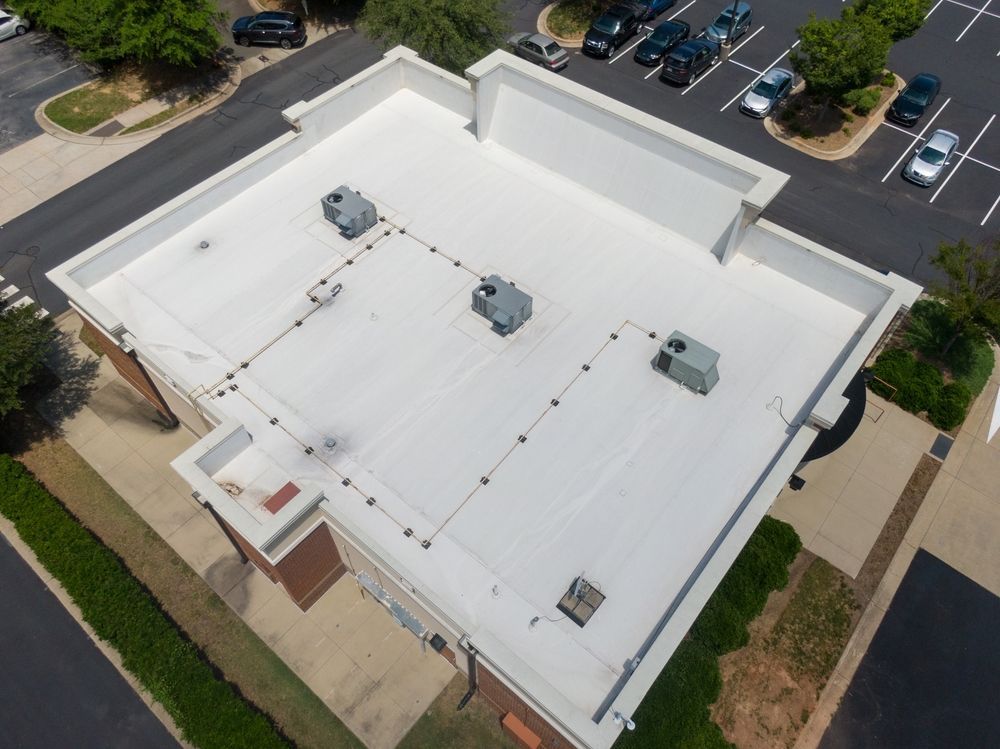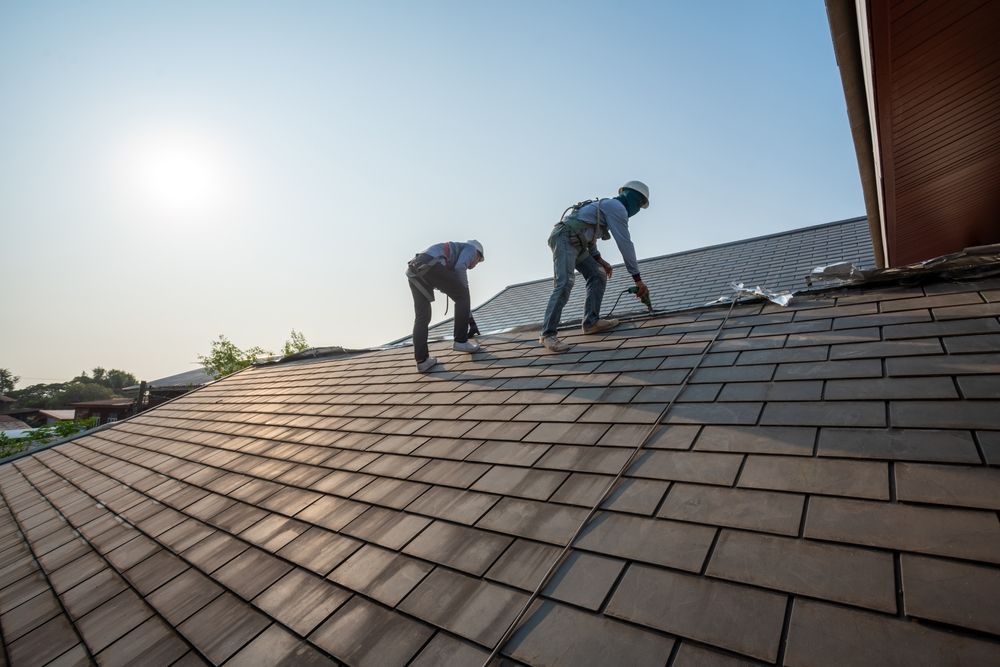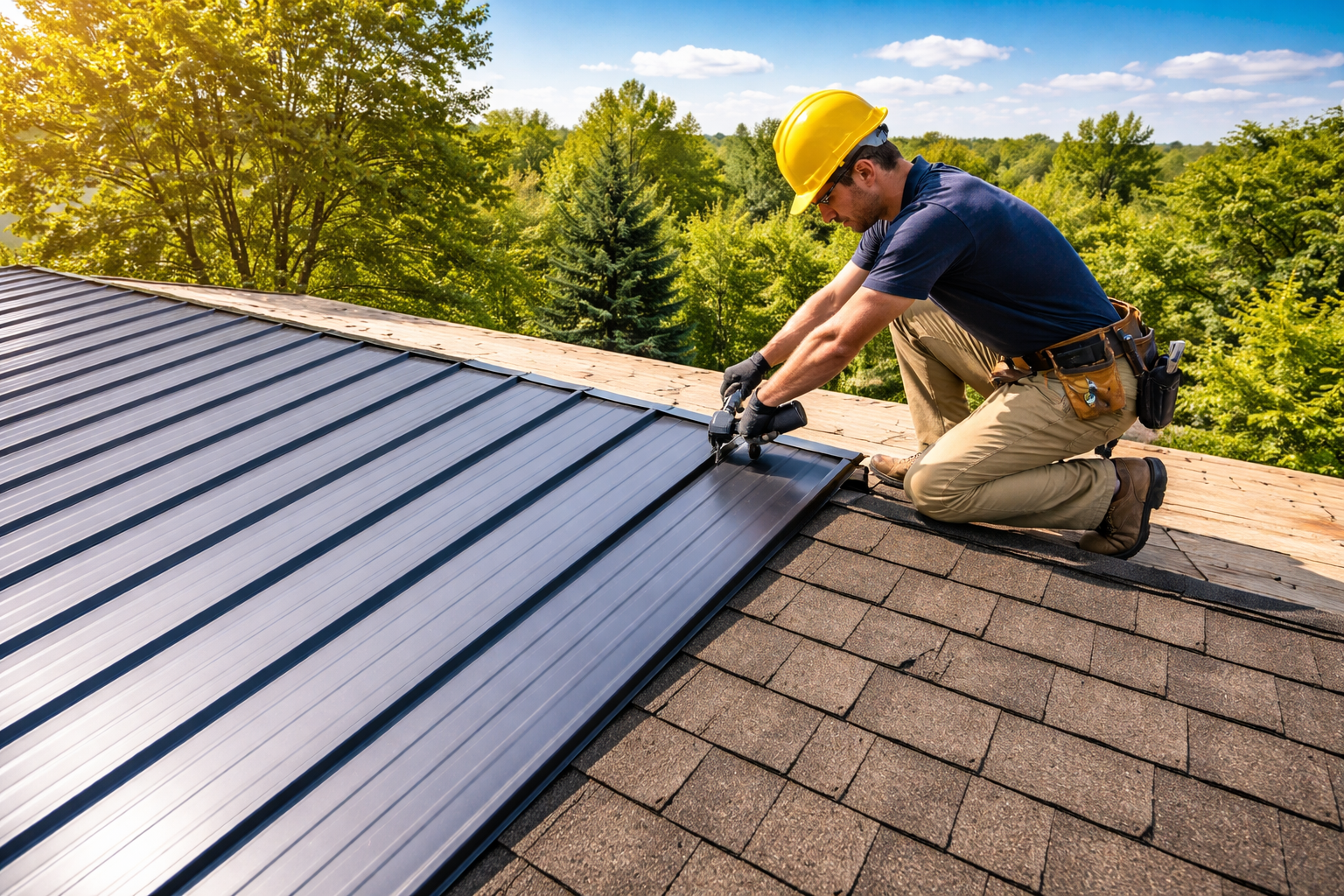A Homeowner's Overview of Atlanta Roof Replacement Costs
One thing all homeowners fear is the words "roof replacement." A new roof can be a major expense, albeit one that is vital to safety, comfort, energy efficiency, and long-term property value. So, one could say the benefits far outweigh the perceived pain of expense. Nevertheless, installing a new roof that provides all these benefits and holds its value for decades requires choosing a roofing company of exceptional reputation and dedication to quality.
Replacing a roof in Atlanta can be a major expense that often leaves homeowners feeling overwhelmed. This guide will break down the key factors influencing roof replacement costs, the average costs you can expect, and financing options available. By understanding these elements, readers will be better prepared to make informed decisions about their roofing projects. This content aims to alleviate the stress of unexpected costs and assist homeowners in effectively managing their roof replacement expenses.
Key Factors Influencing Roof Replacement Costs in Atlanta
Understanding the factors that influence roof replacement costs in Atlanta is essential for homeowners looking to invest wisely. Key elements include evaluating various roofing materials for roof replacement in Atlanta, determining roof size, and considering how the pitch impacts the overall expense. The complexity of the roof shape and the decision to remove old roofing versus installing over can also significantly affect pricing and home insurance considerations.
These insights will help homeowners prepare for a successful roof replacement so they have a clear understanding of how each factor contributes to the overall project.
Understanding the Various Roofing Materials
When selecting roofing materials for residential roofing in Atlanta, homeowners should consider the durability and long-term performance of their options. Asphalt shingles are popular due to their affordability and effectiveness, while metal roofing provides enhanced durability and longevity. Furthermore, both materials require proper installation of flashing to prevent water damage and mold growth for a reliable roofing system that protects the home.
Another option is tile roofing, known for its aesthetic appeal and sturdiness, but it often comes at a higher cost. Homeowners must weigh the initial investment against the potential for fewer repairs over time. Understanding the various materials and their implications for water damage and maintenance will empower homeowners to make informed decisions about their roofing needs.
Evaluating Roof Size and Its Impact on Cost
When assessing roof replacement costs, the size of the roof plays a significant role in determining the overall expense. Larger roofs require more materials and labor, which will directly influence pricing. Homeowners need to consult with roofing contractors to obtain detailed estimates based on their specific roof dimensions, allowing for an accurate understanding of costs while considering environmentally friendly options that may enhance long-term efficiency.
In addition to size, the complexity of the roof design impacts labor costs and installation time. Various features such as skylights, chimneys, and unique shapes can increase the difficulty for roofing contractors, affecting the final price. Engaging with contractors can also provide insights into potential savings and the best materials for a specific roof size, guiding the customer toward informed decisions while also inviting them to reach out with an email address for further inquiries or personalized assistance.
How the Pitch of Your Roof Affects Pricing
The pitch of a roof significantly impacts the cost of roof replacement in metro Atlanta. Steeper pitches often require more labor and safety precautions during installation, which can increase overall pricing. Additionally, steep roofs may necessitate specialized materials or decking to provide durability and adherence to warranty requirements, ultimately affecting the overall investment for homeowners.
Moreover, the climate in Atlanta influences how roof pitch affects both performance and cost. A roof with a higher pitch can be beneficial for drainage and can reduce the likelihood of water pooling, providing added protection against water damage. Homeowners should consider these factors when evaluating roof designs, as the correct pitch can enhance both the longevity of the roofing system and its efficiency in the local climate, contributing to future cost savings through fewer repairs and maintenance needs.
Assessing the Complexity of Roof Shape
The complexity of a roof shape can significantly influence the overall roof replacement costs. Roofs with multiple angles, curves, or intricate designs typically require more craftsmanship and time to install. This increased labor can lead to a higher roof replacement estimate. Additionally, unique shapes may contribute to increased wear and tear over time, necessitating more frequent inspections to prevent leaks and other issues.
For instance, a roof with a steep pitch might demand specialized materials like CertainTeed shingles, which are designed to withstand harsh weather conditions. Homeowners should engage with experienced roofing contractors who can accurately assess these factors when providing a roof replacement estimate. This engagement not only helps in understanding potential long-term maintenance but also aids in selecting materials that enhance durability and aesthetics while minimizing future repair needs.
Considerations for Removing Old Roofing vs. Installing Over
When deciding between removing old roofing or installing over an existing layer, homeowners must consider the long-term implications for their attic and overall home structure. Removing old roofs allows for a thorough inspection of the underlying materials, so any hidden damage is addressed before new roofing is installed. This can lead to a better outcome and enhance the reputation of the roofing work, as well as comply with insurance policy requirements that may favor complete tear-off versus overlay.
On the other hand, installing over an existing roof can save time and money in the short term, but it may not provide the same level of protection or durability that a full removal would offer. Roofs with steep pitches, such as gable roofs, may particularly benefit from a complete replacement, as the additional layers could complicate ventilation and drainage. Engaging with reputable contractors helps homeowners understand the best approach for their specific roofing needs and confirms that all factors, including cost and performance, are taken into account.
Average Cost of Roof Replacement in Atlanta
The costs associated with roof replacement in Atlanta vary significantly based on several factors. This section will provide a breakdown of costs by roofing material, including options like metal and slate. It will also detail average pricing based on roof size and cost estimates for different roof pitches, while addressing regional variations in pricing across Atlanta. Additionally, the importance of accounting for permits and inspections required by local building codes will be highlighted.
Breakdown of Costs by Roofing Material
When considering the costs associated with roof replacement in Atlanta, the choice of roofing material plays a crucial role. For instance, asphalt shingles typically offer an economical option for homeowners, while metal roofing can provide enhanced longevity, which may align better with an insurance policy that emphasizes durability. Homeowners should work closely with a roofing contractor to understand how different materials will impact both immediate expenses and long-term value, so the selected roofing system meets safety and performance standards.
Gable roofs, which are popular in the Atlanta area, can benefit from various materials, each with its distinct cost. Tile roofs, though often more expensive initially, can lead to fewer repairs over time and might be covered under standard construction regulations. Engaging with experienced roofing contractors enables homeowners to evaluate the best roofing materials for their needs, enhancing their understanding of how material selection can dramatically influence both cost and protective qualities of the roofing system.
Average Pricing Based on Roof Size
The size of a roof plays a critical role in determining replacement costs, with pricing typically based on a per-square-foot basis. Homeowners in Atlanta can expect to pay more for larger roofs due to the increased materials and labor required. Consulting with an Atlanta roofing contractor can provide clarity on specific costs relative to the size of the roof, so homeowners understand what to anticipate when budgeting for roof replacement.
Severe weather, such as hail storms, can also affect roofing sizes and the need for replacement. Roofers often factor in the extent of damage and design elements when estimating costs for various roof sizes. Engaging a knowledgeable roofer can help homeowners make informed decisions that align with their roofing needs and budgetary constraints.
Cost Estimates for Different Roof Pitches
The pitch of a roof is a significant factor affecting roofing replacement costs in Atlanta. Roofs with steep pitches may incur higher labor costs due to the increased safety measures and specialized materials required for proper ventilation and structural integrity. Homeowners with properties featuring dormers or other unique designs should consult with experienced contractors to obtain accurate estimates, as these design elements can further influence pricing and installation complexity.
Regional Variations in Atlanta Roof Pricing
Regional variations in Atlanta roof pricing can significantly impact the average roof replacement cost. Factors such as local labor rates, the availability of materials like bitumen, and the proximity to suppliers can cause costs to fluctuate. Homeowners should also consider how different neighborhoods may influence insurance company assessments, as certain areas might be seen as higher risk due to weather patterns or historical damage, potentially affecting overall insurance premiums.
Moreover, understanding these regional differences allows homeowners to budget more effectively for their roof replacement projects. By consulting with local roofing contractors, they can gain insights into current market trends and specific costs associated with their area's conditions. This knowledge empowers homeowners to make informed decisions and select appropriate materials while their investment aligns with both their safety needs and financial considerations.
Additional Costs for Roofing Permits and Inspections
Homeowners planning a roof renovation in Atlanta must consider the additional costs associated with obtaining the necessary roofing permits and inspections. These expenses can vary depending on the project's scope and local regulations, but they are crucial for compliance and enhancing the longevity of the roofing system. For instance, inspecting the installation of roof tiles after a storm helps identify potential weaknesses that could lead to costly repairs down the line.
Engaging with local authorities can provide insight into the permit requirements, which may include detailed inspections to confirm that the work meets safety and quality standards. Investing in proper inspections can ultimately save homeowners money by preventing future issues, making sure roofs not only meet aesthetic needs but also provide the durability required to withstand adverse weather conditions.
Financing Options for Roof Replacement in Atlanta
Homeowners in Atlanta can explore several financing options for roof replacement to manage costs effectively. This includes utilizing home equity lines of credit, making insurance claims for necessary repairs, and considering personal loans. Additionally, some roofing contractors provide payment plans, while government assistance programs may offer financial support. Each option has its advantages and can significantly ease the financial burden associated with roof replacement.
Exploring Home Equity Lines of Credit
Home equity lines of credit (HELOC) can provide valuable financial flexibility for homeowners looking to manage the costs of a roof replacement in Atlanta. By tapping into the equity of their home, homeowners can secure funds to cover the price of materials, such as tile or metal roofing, and labor without the financial pressure of upfront payments. Many lenders offer competitive interest rates, making this option appealing for those who wish to preserve cash flow while addressing essential roofing needs.
As homeowners consider financing options, selecting a HELOC often comes down to evaluating the customer service provided by lenders and understanding the potential for long-term energy savings associated with new roofing systems. Investing in quality roofing not only improves the property's appearance but also enhances energy efficiency, which can lead to lower utility bills over time. With proper planning and a clear strategy, utilizing home equity can facilitate a successful roof replacement project while maintaining financial stability.
Utilizing Insurance Claims for Roof Replacement
Utilizing insurance claims for Atlanta roof replacement can significantly alleviate financial burdens, particularly for homeowners dealing with damage to flat roofs or other roofing types. Insurance policies often cover repairs or replacements when roofs suffer from specific issues, such as storm damage or leaks, allowing homeowners to seek assistance in managing costs. By documenting damages thoroughly and working with reputable contractors, homeowners can complete the claims process more effectively and receive appropriate compensation for necessary repairs.
Homeowners can also benefit from understanding their insurance policies, particularly details regarding coverage limits and the claims process itself. Manufacturers like Owens Corning provide specific warranties that may affect how insurance claims are processed, emphasizing the importance of documenting installation and any maintenance performed. Engaging with insurance representatives can clarify what is covered, facilitating a smoother path to securing funds for a roof replacement that meets the required standards and providing quality and durability for years to come.
Personal Loan Options for Homeowners
For homeowners in Atlanta considering roof replacement, personal loans can be a viable financing option. These loans allow homeowners to cover immediate costs for materials such as asphalt shingles or additional building insulation, making it easier to manage unexpected expenses. By exploring competitive interest rates and terms, homeowners can secure funding that fits their budget, especially if their roofing project involves elements like a chimney or requires work from a general contractor.
Utilizing personal loans provides flexibility when addressing the costs of roof replacement without depleting savings. This approach can be particularly beneficial after experiencing damage from severe wind or other adverse weather conditions, as it helps take care of essential repairs promptly. Homeowners looking to enhance their properties should consider personal loans as a practical solution that enables timely and efficient completion of their roofing projects.
Payment Plans With Roofing Contractors
Payment plans with roofing contractors can provide a flexible solution for homeowners managing the cost of roof replacement in Atlanta. Contractors often offer financing options that accommodate various budgets, allowing homeowners to spread payments over time. This financial strategy can be particularly beneficial when considering the wear and humidity challenges common in the region, making sure the right materials are selected without compromising on quality due to budget constraints.
By choosing a payment plan, homeowners can focus on enhancing their property’s market value and curb appeal without immediate financial pressure. Investing in a new roof is crucial for protecting the structure, especially in a climate prone to moisture-related issues. Contractors can guide homeowners through available plans, making the process smoother and aligning financial commitments with practical roofing needs.
Government Assistance Programs
Government assistance programs can provide valuable financial support for homeowners facing the costs associated with roof replacement. These initiatives often aim to help individuals recover from damages caused by severe weather, ensuring adequate repair or replacement. Homeowners may find access to grants or low-interest loans specifically designed to alleviate the financial strain of roof replacement costs, helping them avoid depreciation of their property value.
In addition to financial aid, these programs may also assist homeowners with roofing insurance claims. Understanding coverage options can simplify the process, especially when unexpected repairs arise. Homeowners can benefit from resources that guide them through maximizing their roofing insurance claims, so they secure sufficient funds for all necessary updates, including elements like skylights or other features that enhance their roofing system.
Choosing the Right Roofing Contractor in Atlanta
Selecting the right contractor for roof replacement in Atlanta involves critical considerations. Before hiring, homeowners should ask pointed questions to confirm that the contractor has the necessary licensing and insurance coverage. Obtaining accurate estimates is essential for budgeting, and homeowners should compare reviews and references to gauge reliability. Understanding warranty and aftercare services helps safeguard the investment, especially concerning any deductible. This section will provide valuable insights on these aspects, guiding homeowners in making informed decisions.
Questions to Ask Before Hiring
When homeowners consider roof replacement in Atlanta, it is crucial to ask the right questions before hiring a contractor. Inquiring about the contractor's licensing and insurance helps them comply with local regulations and protects them from potential liability. Additionally, homeowners should request detailed estimates that include all aspects of the project, such as materials, labor, and any additional costs. This will allow for transparent budgeting and prevent unexpected expenses.
Homeowners should also seek information about the contractor's experience and track record with similar projects. Asking for references or reviewing online testimonials can help assess the contractor's reliability and the quality of their work. Furthermore, understanding the warranty options offered can provide peace of mind, so the investment is protected against future repairs. Engaging with reputable roofing contractors enables informed decision-making, ultimately leading to successful roof replacement outcomes.
Importance of Checking Contractor Licensing and Insurance
Checking contractor licensing and insurance is essential for homeowners in Atlanta before initiating a roof replacement project. A licensed contractor demonstrates compliance with local regulations and standards, confirming they have the technical skills necessary to perform the work safely and effectively. By choosing a licensed professional, homeowners can protect themselves from potential liabilities arising from accidents or damages that may occur during the roofing process.
Insurance coverage plays a crucial role in safeguarding homeowners from financial loss. If a roofing contractor is uninsured, homeowners may find themselves liable for injuries sustained by workers on their property. Engaging with a fully insured contractor not only offers peace of mind but also guarantees any potential damages are covered. This diligence allows homeowners to focus on their roof replacement needs without the added worry of unexpected costs tied to contractor errors or accidents.
Tips for Getting Accurate Estimates
To obtain accurate estimates for roof replacement, homeowners should request detailed quotes from multiple contractors. Each estimate should outline specific elements such as materials, labor costs, and any additional expenses. By gathering several estimates, homeowners can compare offerings and help them understand the pricing structure, allowing for informed decisions regarding their roofing project.
During the estimation process, it is beneficial for homeowners to engage contractors in discussions about their proposed methods and any potential challenges related to the project. Asking contractors how they plan to address factors like roof pitch and structural integrity helps clarify the scope of work and confirms the pricing reflects the proper strategies for a successful replacement. This proactive approach offers transparency and trust between the homeowner and the contractor, ultimately leading to better outcomes.
Comparing Reviews and References
When selecting a roofing contractor in Atlanta, comparing reviews and references is fundamental in making an informed decision. Online platforms and local community boards often feature customer testimonials that highlight the contractors' reliability, work quality, and responsiveness. Homeowners should prioritize contractors with consistently positive feedback, as this information can reflect their ability to deliver satisfactory roof replacement services.
Obtaining references directly from contractors also provides valuable insights into their previous work experience. Homeowners should not hesitate to contact past clients to inquire about their overall satisfaction with the roof replacement process, including adherence to timelines and budgets. This proactive step can significantly aid in identifying a trustworthy contractor, helping homeowners feel confident in their choice and ultimately leading to a successful roofing project.
Understanding Warranty and Aftercare Services
Understanding warranty and aftercare services is essential for homeowners in Atlanta when selecting a roofing contractor. A comprehensive warranty protects against defects in materials and workmanship, providing peace of mind that any necessary repairs will be covered. Homeowners should ask potential contractors about the duration and specifics of their warranties, confirming alignment with their expectations and standards for quality roofing work.
Additionally, aftercare services play a crucial role in maintaining the roofing system's integrity over time. Contractors who offer routine inspections and maintenance checks can help identify issues before they escalate, ultimately reducing long-term repair costs. Homeowners should prioritize contractors who are committed to aftercare, as this can significantly impact the longevity and performance of their new roof.
Common Myths About Roof Replacement Costs
Misunderstandings about roofing costs can lead to poor decisions for homeowners in Atlanta. This section clarifies key myths, such as misconceptions about the expenses related to roofing materials and the temptations of DIY roof replacement. The lifespan of various roof types and the significance of professional installation are also discussed to provide homeowners with practical insights for informed choices in roof replacement.
Debunking Cost Myths Surrounding Roofing Materials
Many homeowners believe that the initial cost of roofing materials is the most significant factor in roofing expenses. While it's true that materials like asphalt shingles typically offer lower upfront costs, their longevity and maintenance requirements can lead to higher long-term expenses. In contrast, investing in durable materials such as metal or tile may involve a higher initial outlay, but their lifespan and reduced repair needs often result in greater savings over time.
Another common misconception is the efficiency of do-it-yourself roofing projects. While DIY efforts can seem financially attractive, homeowners often overlook the costs associated with mistakes or improper installations. Engaging with experienced roofing contractors not only facilitates proper installation but also aligns with local building codes, ultimately minimizing future maintenance issues and enhancing the roofing system's overall performance.
Misconceptions About DIY Roof Replacement
Many homeowners mistakenly believe that handling a roof replacement themselves will save money. While the initial savings on labor costs may seem appealing, this approach often leads to hidden expenses. Errors in material selection or installation can result in long-term damage, necessitating costly repairs or a full replacement sooner than expected. Engaging a professional contractor guarantees adherence to local building codes and the application of best practices, minimizing future maintenance issues.
Another misconception is that DIY roof replacement offers the same quality of work as a professional job. Homeowners may underestimate the importance of expertise and experience in delivering durability and safety. Professional contractors are trained to handle diverse roofing materials and unusual roof designs, reducing the risk of errors that could compromise the roof's integrity. By investing in skilled labor, homeowners protect their investment and enhance the longevity of their roofing system.
The Truth About Aging Roofs and Replacement Timing
Aging roofs can significantly impact replacement timing and costs for homeowners in Atlanta. As roofs age, they may develop issues like leaks, missing shingles, or other damages that compromise their integrity and functionality. It is advisable for homeowners to monitor their roofs regularly and consult with roofing professionals to assess the state of their roofing materials before problems escalate and lead to costly repairs.
Understanding the lifespan of various roofing materials is essential for determining when to replace an aging roof. While asphalt shingles typically last around 20 years, metal roofs can last up to 50 years or more. Homeowners should weigh these factors against their specific circumstances and local weather patterns, as timely replacement can prevent further damage to the home and save on future repair expenses.
Exploring the Lifespan of Various Roof Types
Understanding the lifespan of various roof types is vital for homeowners considering roof replacement in Atlanta. Asphalt shingles typically last about 15 to 30 years, depending on quality and installation. In contrast, metal roofs can endure for over 50 years, offering greater longevity and potentially lower long-term costs due to their durability and resistance to extreme weather.
Tile roofs, known for their aesthetic appeal, can last 40 years or more with proper maintenance. Such durability may justify their higher initial installation costs when considering long-term savings on repairs. By grasping the lifespan of different roofing materials, homeowners can make informed decisions that align with their budget and expectations for performance.
Understanding the Value of Professional Installation
Engaging a professional roofing contractor for installation plays a pivotal role in the durability and performance of a new roof. Experienced contractors possess the necessary training associated with various roofing materials and techniques, minimizing the risk of installation errors that could lead to costly repairs down the line. Their expertise also allows them to adhere to local building codes and best practices, which helps protect homeowners from potential liabilities and guarantees a reliable roofing system.
Homeowners should recognize that professional installation often results in warranties that cover workmanship and materials, adding significant value to their investment. By choosing skilled professionals, homeowners not only secure peace of mind but also enhance the longevity of their roofs, ultimately leading to reduced maintenance costs over time. Making the right choice in roofing installation is crucial for achieving long-term satisfaction and protection for one’s property.
Preparing for a Roof Replacement in Atlanta
Homeowners in Atlanta should take essential steps before replacing their roofs for a smooth process. This includes selecting the optimal time of year for installation, maintaining clear communication with the roofing team, and managing expectations throughout the project. Additionally, understanding post-installation maintenance tips will help extend the roof's lifespan and maintain its effectiveness.
Steps to Take Before the Installation Begins
Before starting the installation of a new roof, homeowners in Atlanta should take steps for a smooth process. First, it is vital to choose the appropriate season for installation. Spring and fall are often ideal due to milder weather conditions, which can improve the efficiency of the installation and the quality of the materials used.
Another important step involves assessing the property to prepare for roofing work. Homeowners should clear any obstacles around the property, such as outdoor furniture or decorations, to provide easy access for the roofing crew. Effective communication with the roofing contractors about the project timeline and expectations is also essential, keeping homeowners informed throughout the roof replacement process and addressing any questions or concerns promptly.
How to Choose the Best Time of Year for Replacement
Choosing the right time of year for a roof replacement in Atlanta is essential for homeowners seeking to optimize both cost and effectiveness. Spring and fall are often the most favorable seasons, as the mild temperatures and lower chances of extreme weather allow for more efficient installation processes. Homeowners can also avoid the heat of summer or the cold of winter, which can impact the materials used and the comfort of the crew working on the project.
Additionally, scheduling roof replacement during the off-peak seasons can lead to cost savings. Contractors may offer better pricing due to lower demand, allowing homeowners to take advantage of competitive bids while improving their budgeting for the project. By considering these factors, homeowners can make sure their roof replacement aligns with both their financial goals and the logistical needs of their property.
Communicating With Your Roofing Team
Effective communication with the roofing team is crucial for a successful roof replacement project in Atlanta. Homeowners should establish clear expectations regarding the timeline and scope of work, allowing contractors to understand the specific needs and preferences. This open dialogue can help prevent misunderstandings and make sure any potential issues are addressed promptly, contributing to a smoother and more efficient installation process.
Additionally, homeowners should maintain regular contact with their roofing contractors throughout the project. This interaction provides opportunities for homeowners to ask questions, seek updates on progress, and share any concerns that may arise. By fostering this relationship, homeowners can remain informed about the various aspects of their roof replacement, ultimately enhancing satisfaction and making sure the new roof meets their requirements and expectations.
Managing Expectations During the Process
Managing expectations during a roof replacement in Atlanta is vital for a smooth experience. Homeowners should understand that the timeline for completion can vary based on factors such as weather conditions, the complexity of the roof design, and the availability of materials. Regular communication with the roofing team can prevent misunderstandings and help homeowners feel informed about any changes in schedule or process, ultimately reducing stress during this home improvement project.
It is essential for homeowners to remember that unexpected challenges may arise, such as underlying damage discovered after removing the old roofing materials. Being prepared for such possibilities allows homeowners to adjust their plans and budgets accordingly, avoiding surprises later on. Clear discussions with the contractor about potential issues and how they will be addressed can build trust and make sure the roof replacement process meets the homeowner's needs and expectations.
Post-Installation Tips for Roof Maintenance
After a roof replacement, regular maintenance is vital to prolonging the roof's lifespan and optimal performance. Homeowners should inspect their roofs at least twice a year, particularly after severe weather events common in Atlanta. Identifying issues like lifted shingles or debris accumulation early can prevent costly repairs, maintain the roof's integrity, and enhance overall safety.
Additionally, it's essential to keep gutters clean and free from obstructions to facilitate proper drainage. Clogged gutters can lead to water pooling and potential leaks, undermining the roofing system's effectiveness. Scheduling professional inspections at regular intervals can also provide homeowners with peace of mind, as experts can assess and address any concerns before they result in significant problems.
